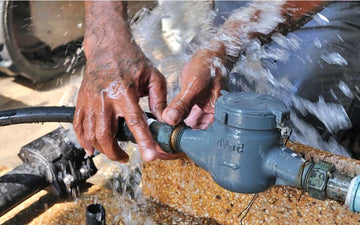The industrial landscape continues to evolve, demanding precise and reliable solutions for maintaining high-quality standards. With the advent of smart fluid detection systems, industry Quality Assurance (QA) teams are experiencing a revolutionary shift in how they monitor and manage fluid-related processes. This article explores the myriad ways in which these systems are transforming QA measures, enhancing operational efficiency, and introducing unparalleled precision to the workflow.

How Smart Fluid Detection Systems Work
Smart fluid detection systems utilize advanced sensors and technologies to monitor fluid characteristics in real-time. These systems are designed to detect changes in fluid levels, viscosity, and contamination, ensuring that quality benchmarks are consistently met. By leveraging the power of data analytics, businesses can anticipate issues before they escalate, allowing for proactive management and minimizing potential downtime.
The Technology Behind Smart Fluid Detection
At the core of these systems are highly sensitive sensors capable of analyzing various fluid properties. These sensors are integrated with AI algorithms that process the data, providing insightful and actionable feedback. The technology is aligned with IoT ecosystems, ensuring seamless connectivity and constant communication among devices. This interoperability facilitates a holistic overview of the fluid conditions across multiple stages and locations within the production chain.
Benefits for Industry QA
The integration of smart fluid detection systems into industry QA processes brings numerous benefits:
- Enhanced Accuracy: With real-time data acquisition, errors are significantly reduced, improving overall product quality.
- Increased Efficiency: Automated alerts and predictive maintenance minimize disruptions, saving time and resources.
- Cost Reduction: Early detection of anomalies prevents costly breakdowns and product recalls.
- Regulatory Compliance: Maintaining constant oversight aids in meeting industry standards and regulatory requirements.
Real-World Applications
The impact of smart fluid detection systems extends across various industries, including manufacturing, pharmaceuticals, and food processing. These systems help pharmaceutical companies maintain sterility, ensuring that medications meet the highest safety standards. In the food industry, consistent monitoring of fluid ingredients guarantees that products are free from contamination, safeguarding public health.
For a deeper understanding of sensor calibration in water devices, you can read more about sensor calibration here.
The Future of Fluid Detection in Industry QA
As industries continue to innovate, the reliance on smart fluid detection systems will only grow. Future iterations of these technologies are expected to incorporate machine learning capabilities, enabling even more refined data analysis and faster response times. The potential for integration with other smart devices and platforms will further enhance their value, setting new standards for industry QA.
For insights on Alexa-compatible water sensors, check this link.
Challenges and Considerations
Despite the advantages, implementing smart fluid detection systems is not without challenges. Initial setup costs can be significant, and ensuring compatibility with existing infrastructure requires careful planning. Additionally, ongoing training for staff is necessary to effectively leverage the technology.
Discover how smart leak detectors prevent water damage.
Conclusion
Smart fluid detection systems serve as a monumental advancement in industry QA, with robust advantages that translate into better quality products and improved operational workflows. As technology continues to advance, industries must remain agile and adaptive, embracing these fluid detection technologies to stay at the forefront of quality assurance.
For more about home protection systems, visit home protection sensors.

FAQs
What are smart fluid detection systems?
They are systems that utilize modern sensor technology to monitor changes in fluid properties, providing real-time data for quality assurance.
How do these systems differ from traditional methods?
Unlike traditional methods, smart systems offer real-time analysis, automated alerts, and data-driven insights, enhancing precision and efficiency.
What industries benefit most from smart fluid detection systems?
These systems are particularly beneficial in industries like manufacturing, pharmaceuticals, and food processing, where maintaining fluid integrity is crucial.






